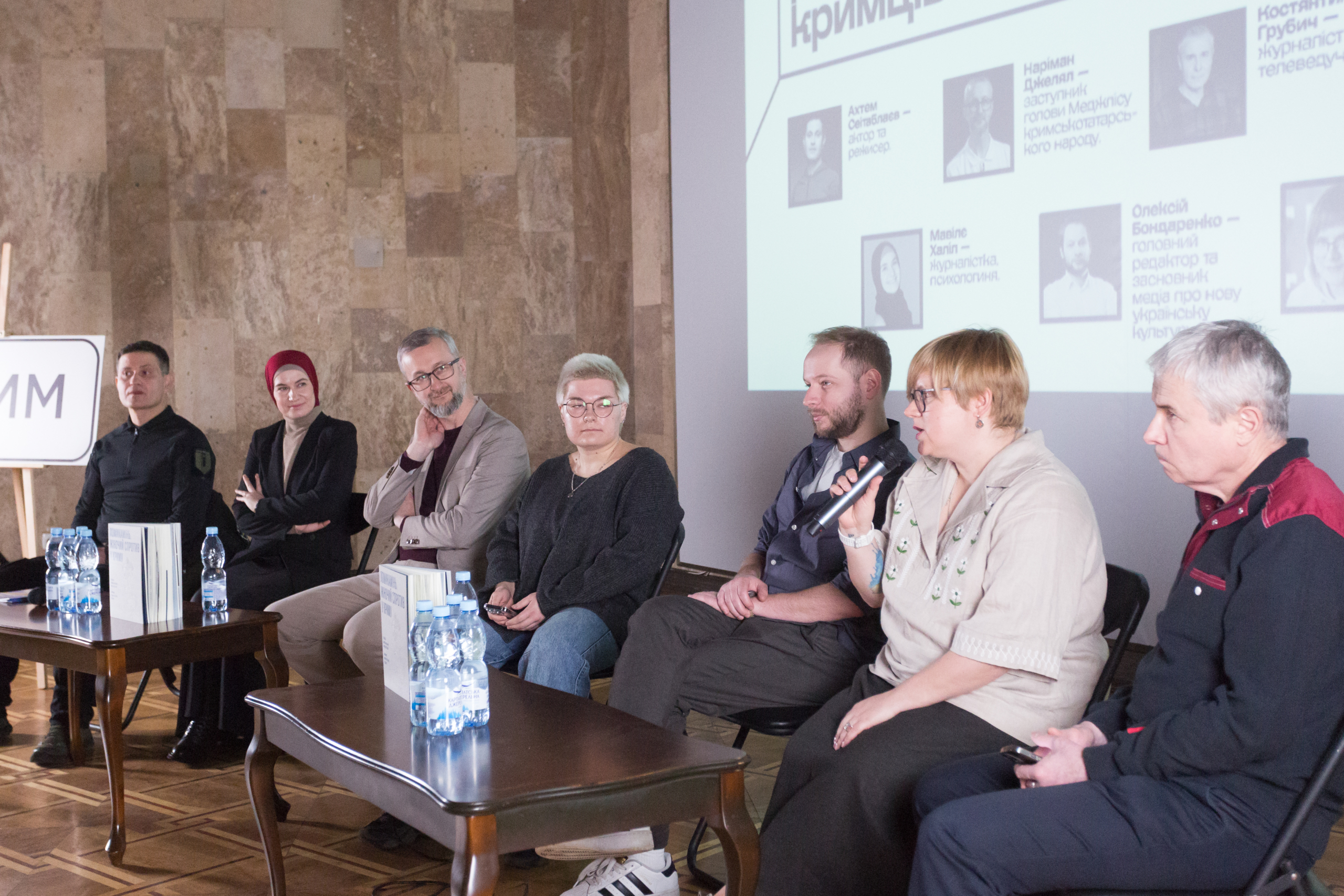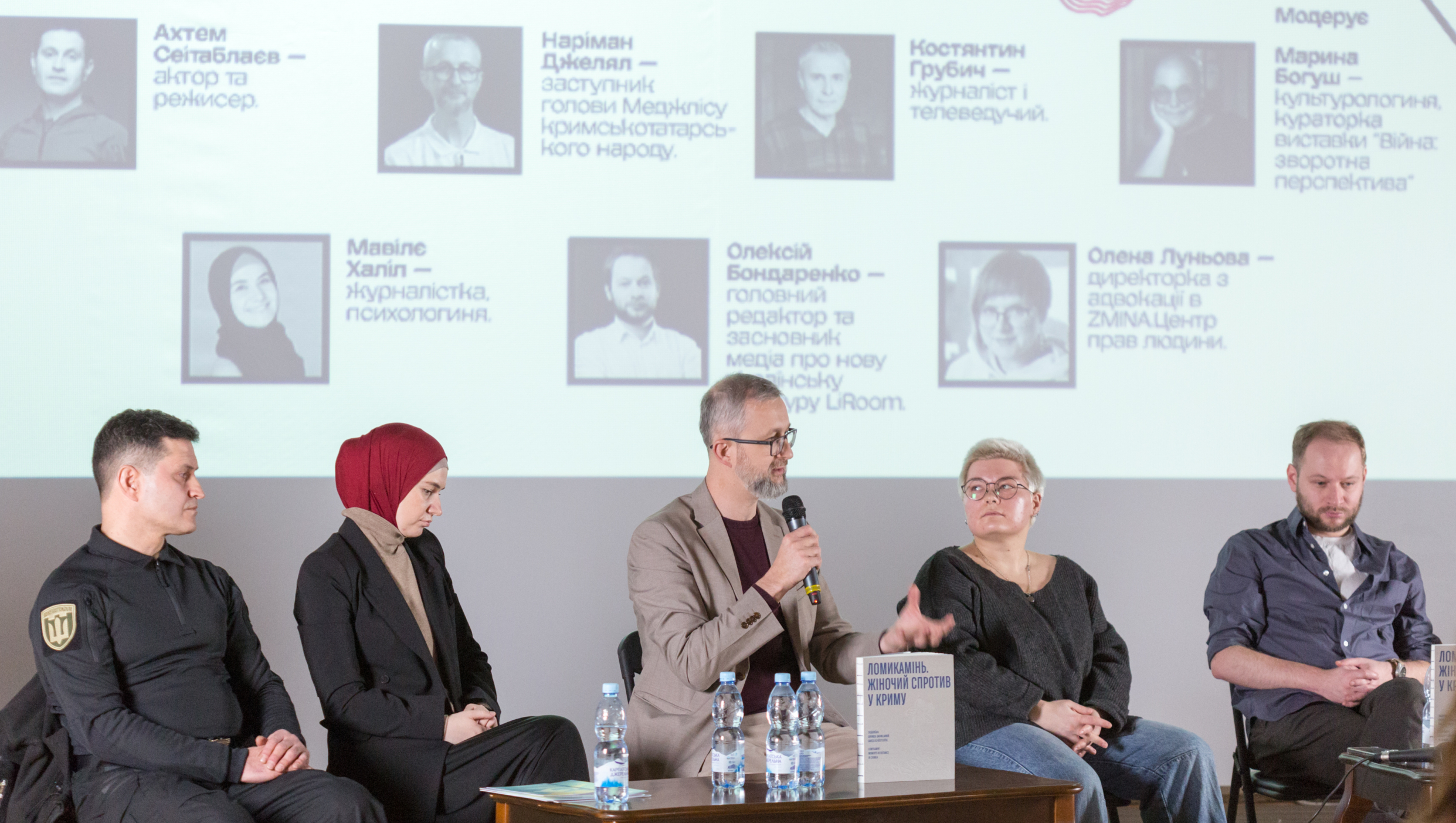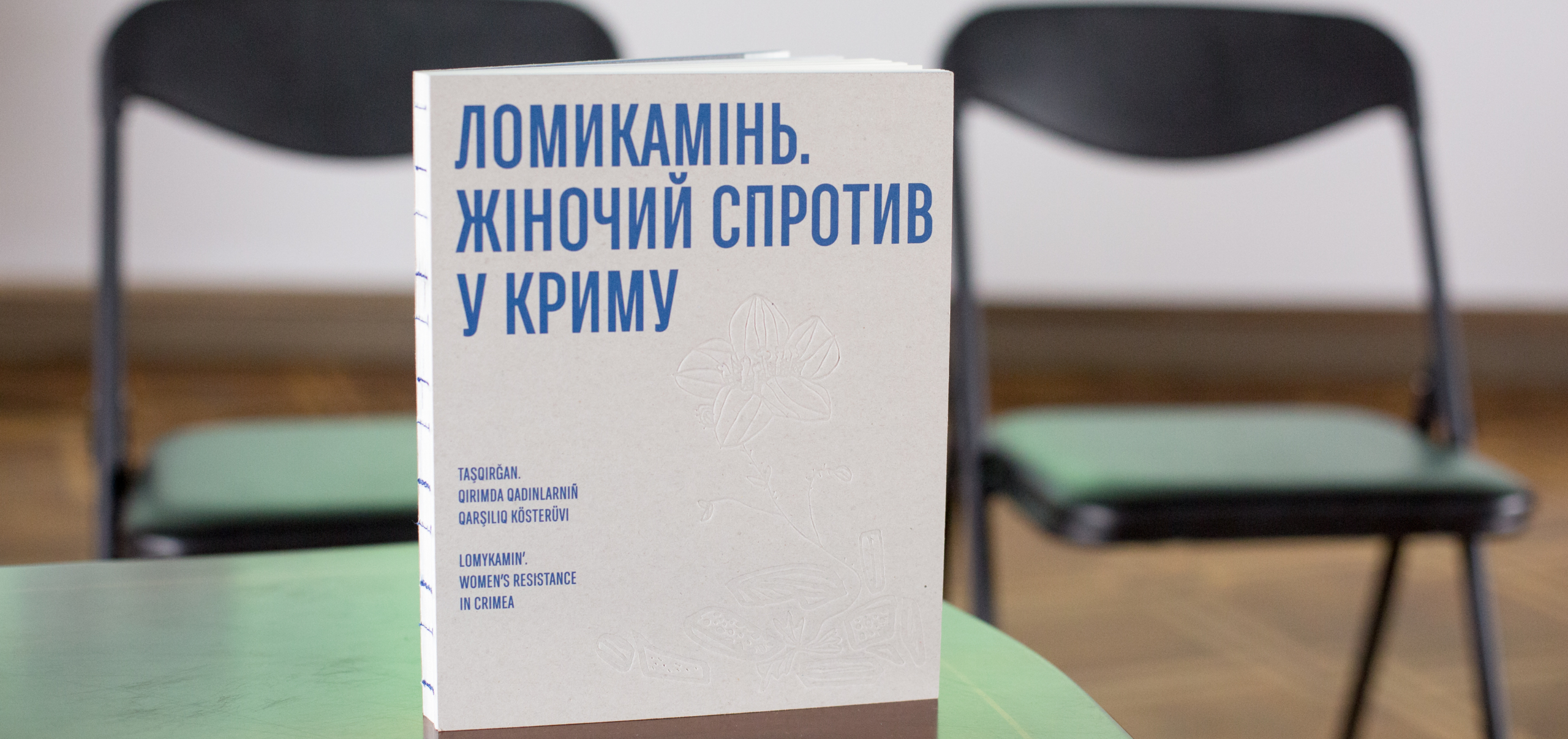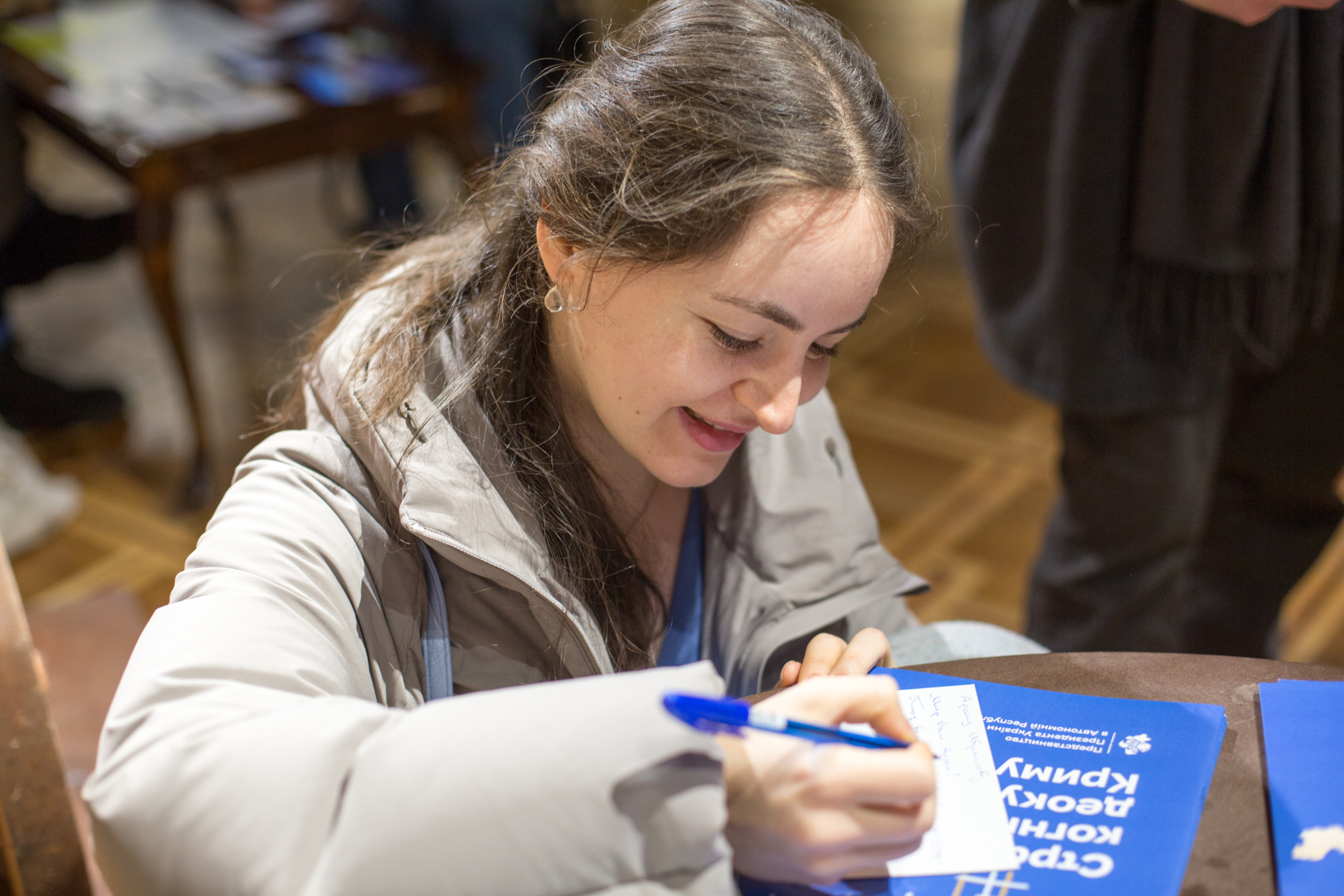ZMINA took part in a discussion on the cultural decolonisation of Crimea
On 26 January, the National Museum of the History of Ukraine in the Second World War hosted a discussion on “Cultural Representations of Crimea and Crimeans” as part of the exhibition project “War: Inverse Perspective”.

The event was attended by representatives of culture, journalism and human rights activities, including Alena Lunova, Advocacy Director of the Human Rights Centre ZMINA, Nariman Dzhelyal, First Deputy Chairman of the Mejlis of the Crimean Tatar People, Akhtem Seitablaiev, actor and director, Kostiantyn Hrubych, Journalist and TV host, and Oleksii Bondarenko, Editor-in-Chief and Founder of LiRoom Media. The discussion was moderated by Maryna Bohush, Curator of the “War: Inverse Perspective” project.
The main focus of the discussion was the re-contextualisation of Crimea in Ukrainian society, its cultural heritage, the future after de-occupation, and the role of the Crimean Tatar people in shaping national identity.
Alena Lunova stressed the importance of cultural decolonisation of the peninsula: “We need to collect evidence of what is happening in Crimea and other temporarily occupied territories of Ukraine. We need to find out the markers that distinguish Crimea from the empire. And we need to outline this and filter it out as soon as possible through the expansion of Crimean studies“.

She stressed that Ukraine should already be preparing for the process of restoration of Crimea after de-occupation; in particular in the field of culture and education, where the influence of Russian imperial narratives remains. However, it is important to have information about the real situation on the peninsula.
“Since 2014, Ukrainian legislation has had a defined approach to the temporarily occupied territories. In fact, it is about denying anything that happens there. The consequence of this approach is the non-recognition of documents issued during the occupation, the denial that life is also possible and exists in the occupation. After almost 11 years of occupation of Crimea, it is important to reconsider this approach, because we cannot deny the lives of hundreds of thousands of fellow citizens who live under occupation. We need to change our approaches and reconsider our vision regarding the TOT,” Lunova said.
During the discussion, the First Deputy Chairman of the Mejlis of the Crimean Tatar People Nariman Dzhelyal noted that the return of Crimea should be accompanied by the restoration of its true cultural identity.
“Ukrainians are a political nation, and it is our duty to look back at our own history, learn from its lessons and build a future based on real, not artificial, values and concepts. Crimean Tatars should be perceived as an integral part of civil society, not as something separate or alien,” said Nariman.

The participants of the event stressed that the future of Crimea is inseparably linked to the fight for human rights, cultural heritage and the return of the truth about the history of the peninsula.
Permanent Representative Olha Kuryshko presented the War Museum with the “Catalogue LOMYKAMIN. Women’s Resistance in Crimea” and stressed the importance of highlighting the role of women in the fight against Russian aggression and preserving their experience through art. She expressed her gratitude to the participants of the discussion and to all those who work on the coverage of Crimean issues.

Museum visitors also joined the Letters to Free Crimea campaign to express support for illegally imprisoned Crimeans.

Photo: Mission of the President of Ukraine in the Autonomous Republic of Crimea
If you have found a spelling error, please, notify us by selecting that text and pressing Ctrl+Enter.















